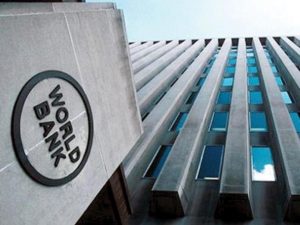East Africa’s Lone Duck – Burundi Singled Out in Trump’s Latest U.S. Travel Ban

East African nation Burundi is the lone duck in the latest US emigration travel ban after the Trump administration listed it among just seven countries facing partial travel restrictions to the United States.
Unlike neighbouring countries, Burundi stands alone in the Great Lakes region under this designation.
While Somalia and Sudan–both in the Horn of Africa–face a total travel ban under the new proclamation, regional peers such as Uganda, Rwanda, DR Congo, Kenya, and Tanzania have been spared entirely.
The policy, set to take effect on 9 June, is the second major travel ban of its kind under Donald Trump, echoing his first-term restrictions that targeted Muslim-majority nations.
Trump announced the new ban while invoking a recent attack in Colorado, where 12 people were injured during a pro-Israel gathering.
Although an Egyptian national was charged in connection with the incident, Egypt was not listed among the banned countries.
Instead, the White House released a list of 12 countries facing full bans–Afghanistan, Myanmar, Chad, Congo-Brazzaville, Equatorial Guinea, Eritrea, Haiti, Iran, Libya, Somalia, Sudan, and Yemen–alongside seven more, including Burundi, that face partial restrictions.
Trump said the decision was based on national security and the need to protect Americans from individuals who are not “properly vetted.”
“We don’t want them,” he stated at the press briefing, adding that the US would not accept travellers from nations it deems non-compliant with its vetting and immigration systems.
The details of Burundi’s partial ban remain vague, but partial restrictions in similar cases have often included tighter screening, restrictions on certain visa types, or limits on family reunification and diversity lottery programmes.
_____________________________________________
Total ban:
·Afghanistan ·Burma ·Chad ·Congo ·Eritrea ·Haiti ·Iran ·Libya ·Somalia ·Sudan ·Yemen ·Equatorial Guinea
Partially restricted countries:
·Burundi ·Cuba ·Laos ·Sierra Leone ·Turkmenistan ·Venezuela ·Togo
_____________________________________________
By contrast, countries like Somalia and Sudan face blanket suspensions of all immigrant and non-immigrant travel.
Analysts across the region are questioning why Burundi, a landlocked country with relatively low emigration rates to the US, has been targeted.
“This may reflect diplomatic isolation or strained relations with Washington,” said an East African diplomat who asked not to be named.
“There’s no major security crisis spilling out of Burundi right now, so its inclusion is puzzling.”
The other countries facing partial bans are Cuba, Laos, Sierra Leone, Togo, Turkmenistan, and Venezuela. None are geographically or politically aligned with Burundi, intensifying speculation about the unique rationale behind the move.
Critics of the policy have called it arbitrary and discriminatory. Robyn Barnard, a senior counsel with Human Rights First in Washington DC, said the selection of countries under the ban lacks coherence.
“Many of these countries are places people flee due to conflict, repression, or rights abuses,” she told the BBC.
“This feels more like punishment than policy.”
The Trump administration insists that the list is subject to change depending on a country’s willingness to meet US immigration and security demands. A White House statement noted that “key officials will immediately engage” with affected governments to discuss compliance.
Burundi, however, maintains limited diplomatic representation in the US and has not issued an official response.
The embassy in Washington has historically struggled with staffing and outreach, and it remains unclear whether Bujumbura will seek clarification or appeal its inclusion.
Meanwhile, regional governments are staying quiet. With Uganda and Rwanda recently increasing bilateral engagement with the US, Burundi’s isolation on this list may reflect broader geopolitical dynamics rather than immediate security threats.
The travel ban takes effect at 5am BST on Sunday, June 9 (Monday EAT).
Unless reversed or challenged in court, it will mark a significant setback for Burundians seeking to study, reunite with family, or work in the United States–privileges that remain unaffected for their neighbours in the region.
By Nile Post.



